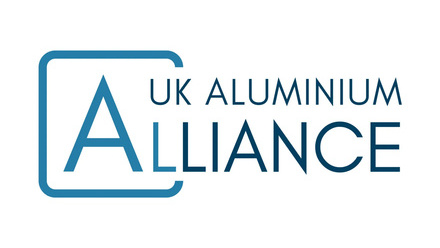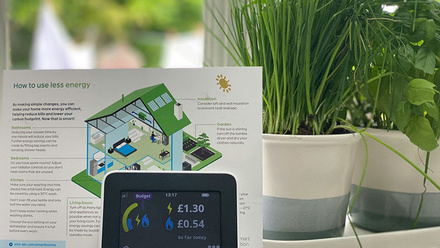No agreement reached on Global Plastics Treaty at INC-5
The Intergovernmental Negotiating Committee met in Busan between 25 November to 1 December to reach a consensus on plastic pollution.
The fifth session of the Intergovernmental Negotiating Committee to develop an international legally binding instrument on plastic pollution (INC-5) was held in Busan, South Korea, from 25 November to 1 December. The event was attended by over 3,000 delegates, representing national governments, industry, academia, international organisations and UN entities. The session was expected to produce an agreement on a treaty text on plastic pollution, however failure to reach a consensus between states meant this was not achieved.
Key takeaways:
- After two years of INC negotiations, an agreement was due to be reached at Busan.
- States diverged on key issues including the phase out of harmful plastic products, limitations on plastic production and whether treaty measures should be binding or voluntary.
- A large number of countries, including the UK, called for ambitious and binding targets in these areas.
- However, a smaller bloc, known as the ‘like-minded group’, sought less stringent measures.
- No consensus was reached and the session was closed without an agreement.
- Further negotiations will take place in 2025.
History of the INC:
The demand for an international instrument on plastic pollution emerged in the context of growing concern about the impact of plastic waste on human, animal and environmental health. Approximately 400 million tonnes of plastic are produced each year and of all the plastic produced up to this point, an estimated 9% has been recycled. Plastic waste has adverse effects on the entire ecosystem when released into the environment, and micro- and nano-plastics have been found on every part of the planet, including the air we breathe. A 2022 study found that microplastics were identified in human lungs and blood, while a 2021 report demonstrated the presence of microplastics in human placenta.
Moreover, plastics are highly carbon intensive. Calculations by Carbon Brief estimate that 2.7bn tonnes of CO2 equivalent were produced during the plastics lifecycle in 2023, totalling approximately 5% of global emissions. If current trends in the growth of plastics production continue, plastics could consume over 50% of the remaining carbon budget for 1.5C.
Against this backdrop, in 2022 UN member states endorsed a resolution to end plastic pollution at the UN Environment Assembly in Nairobi. The resolution committed to forging an international legally binding agreement by 2024 and established the Intergovernmental Negotiating Committee (INC) tasked with producing a draft treaty. The first INC session took place in Uruguay in late 2022 and in the years since there have been three other sessions moving towards the goal of a treaty text. In these earlier INC sessions, gaps had already begun to emerge in delegate expectations around issues such as scope, financing and extended producer responsibility.
INC-5 key events:
Weeks prior to the beginning of this year’s session, INC Chair Luis Vayas circulated a 'non-paper' to delegates. A non-paper is an unofficial document used as a starting point for negotiations, which in this case was based on informal meetings that had occurred since the last INC session. This paper formed the basis for negotiations throughout the week. On Monday 25 November, delegates adopted a provisional agenda and agreed to make all substantive decisions by consensus. Additionally, Vayas introduced four contact groups through which country delegates divided work on different issues. Some key areas assigned to contact groups included the production and supply of plastic products, product design, waste management, existing plastic pollution, capacity building and information exchange. Most of the articles in the non-paper were discussed in the contact groups on Tuesday, Wednesday and Thursday. Based on the outcomes of these discussions, a draft text of the Chair of the Committee was released on Friday afternoon.
On Friday and Saturday more contentious areas of the text were discussed in informal, state-only meetings. This closed-door approach led to criticisms around transparency from non-state actors such as industry and academia. However, while a Chair’s Text was released on Sunday based on these informal negotiations, states were far from reaching a final consensus. In the final session, which ran into early Monday morning, delegates agreed to suspend INC-5 without a deal and take up negotiations again within a year.
Points of divergence:
In general terms, the deadlock seen at INC-5 can be attributed to a rift between high-ambition nations and those seeking a less stringent agreement. As such, key questions included how broad the scope of the treaty should be, whether treaty measures should be voluntary or mandatory and whether standards should be applied globally or nationally. In this context two main country blocs emerged. A group of over one hundred countries, including the UK, made calls for an ambitious and binding treaty with defined global targets. A smaller bloc, known as the ‘like-minded group’, sought to limit the scope and requirements of the agreement.
Of particular importance was the proposed Article 6 on plastics production. Research has suggested that capping plastic production could play an important role in reducing plastic waste mismanagement. Though there was no proposed text on this issue in the original non-paper circulated to delegates, Panama, on behalf of 102 countries, submitted a text proposal including references to a global target for the reduction of plastics production. This accompanied calls by many states to take a full lifecycle approach to the issue of plastic pollution.
However, restrictions on plastic production are controversial due to the potential impact on the demand for fossil fuel derived feedstocks. The ‘like-minded group’ is a bloc of states formally announced during the INC-3, who have sought to narrow the scope of any agreement to end-of-life waste management. Members include Iran, Saudi Arabia, Russia and several other nations with a high reliance on the fossil fuel economy. At INC-5, the like-minded group expressed a strong opposition to restrictions on production arguing that such measures fall outside the mandate of the INC, undermine resource sovereignty and disregard the value of plastics for critical sectors such as healthcare.
Draft Article 3 on the phase-out of harmful plastic products and chemicals of concern was similarly contentious. The UK was among 95 countries to support a declaration calling for legally binding obligations in this area. However, there was major debate on whether measures should be applied globally or at a national level and some delegates argued for the exclusion of the article entirely.
Final outcome:
The primary outcome of the INC-5 has been the decision to use the Chair’s Text as a basis for further negotiations. The text is heavily bracketed, meaning that much of the content is undecided. Moreover, Chair Vayas made clear that all elements remain open to addition, deletion or modification when negotiations resume. Nevertheless, some states, including Uganda, Uruguay and the Arab Group, suggested that the Chair’s Text does not accurately reflect the present state of negotiations and argued that points of divergence on issues such as plastic products and finance must be recognised.
In the final session, several nations highlighted the need for a more ambitious approach going forward. Rwanda, on behalf of 85 states, expressed concern that a “small group of countries” was attempting to remove legally binding text from important provisions and stressed the need to introduce a global target on the reduction of plastic production. In their contributions, countries such as the EU, Mexico, Ecuador and Congo echoed these sentiments and reiterated the need for binding measures.
Despite enduring divisions, many expressed faith in the potential for the Committee to reach its aims. Panama said that the 102 states who supported a strong binding treaty offered “glimmers of hope amidst disappointment”. Similarly, France highlighted that the time spent in Busan was not wasted and created a basis from which to move forward. Finally, Ghana, on behalf of the African Group, said there was hope the Committee could become known as “the INC that delivered an instrument that ended plastic pollution.”
Next steps:
States agreed that a resumed session, dubbed INC 5.2, will take place at some point in 2025. The time and location of the treaty has yet to be set and there has been disagreements between states on how early in the year it should take place.
The Department for Environment, Food and Rural Affairs has stated that the UK will continue to work with international partners to ensure that an ambitious agreement is reached at the resumed session. The UK Government further stated that a treaty that “tackles the full life cycle of plastics and promotes a circular economy” is “urgently” needed.








